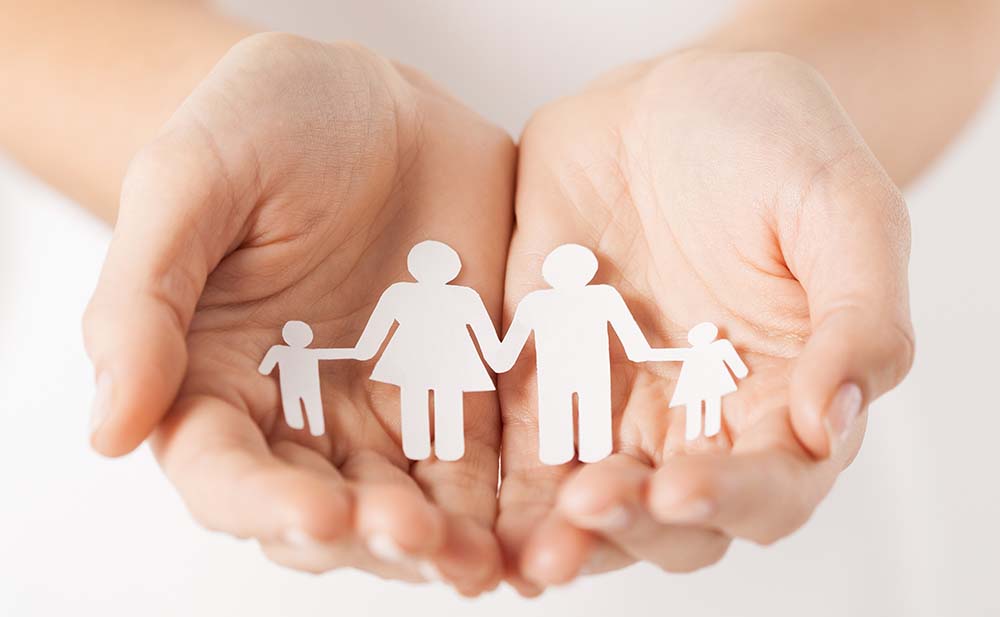New research reveals that the Australian family unit is stronger than ever in the face of COVID-19 and social isolation, with close to nine in 10 (87.7%) finding new ways to connect and make the best of this challenging period.
The New Family Norm Report, commissioned by Real Insurance, explores the impact, and strength of the Australian family unit in the face of COVID-19, along with the likely lasting effects of this unprecedented health crisis.
With a majority of Australians saying the pandemic has brought their family closer together (80.3%), over half (54.4%) have found that the dynamics within the family unit have changed. Parents have become dynamic duos, stepping up teamwork to manage (85.0%), with many reporting that their children have also taken on new roles and responsibilities (79.2%).
The research, which surveyed over 5,000 Australian parents, indicates the way in which families spend time together has also changed. While the majority of parents (70.9%) agree that their children’s screen time has increased ‘somewhat’ during the pandemic, many have noted that the way they spend ‘family time’ is shifting. Nearly half said they have started cooking and eating together more often (47.2%), watching more movies and TV shows together (46.7%) and even playing more games and completing puzzles together (35.8%).
Although families are bonding in new ways and are happier than they’ve ever been, there have been a number of stressors placed on them. Almost 60 per cent (58.9%) say them financial insecurity and uncertainty about the future has placed strains on their relationships. This isn’t necessarily surprising given 38.8 per cent have experienced some sort of negative impact in their working lives, such as reduced hours and income, and even losing work altogether. Single parent families have also beared the brunt, with 78.7 per cent agreeing it’s been much tougher for them.
Psychologist, Sabina Read, says that now is an opportune time to reflect on what we want more
of in our relationships, our careers and our families.
“For many Aussie families, life was becoming busier and the often-frenzied pace was showing few signs of abating, until COVID-19 hit. Although many of us are feeling understandably uncertain, it is a welcome finding that the majority of families feel the pandemic has brought them closer together,” Ms Read said.
“We should use this time to initiate conversations about what is working well and what we would like to change. Asking each other what we have learnt about ourselves is a great place to start the process of embedding useful and adaptive long-term changes.
With enforced changes to our daily routines, and more time to reflect, it’s a positive shift to see many mums and dads taking on new roles, and perhaps communicating more with each other about how they would like to contribute to the family unit in different ways.
A majority of parents with school-age children have had to home school their children at some point during the pandemic (88%), which is still the case for many parents in Victoria, and even across New South Wales.
And although challenging, many parents have found it to be manageable (50.0%), with a smaller proportion of just under a quarter finding it ‘reasonably hard’ (23.2%) and an even smaller number saying it has been ‘very stressful’ (13.5%).
The home schooling period could have an impact beyond the education itself, with 30.7 per cent of parents feeling that COVID-19 will leave a lasting long-term impact on their children’s education, and the ability to get into university or certain jobs. Parents feel that it has created gaps in their knowledge (47.0%), lack of key skill development (41.7%) and stunted their progress (39.2%). Alarmingly, about a quarter (24.6%) believe their child will have to repeat a year as a result.
Parents have also been concerned about their children’s ability to socialise (43.5%), them increased screen time (40.4%) and the reduced quality of education (38.2%). Most say their child had trouble adapting to the new rules (57.0%), and that they struggled to understand why they couldn’t – and in some instances still can’t, visit their grandparents (50.5%).
And whilst children have been the main focus of parents during this time, many are looking inwards and reprioritising aspects of their lives. A majority (69.7%) say it’s been a good time to build or learn new skills, with self-driven/self-improvement initiatives a key priority (65.8%).
Half of Australian parents are also investing time in completing online formal courses (50.8%), perhaps unsurprising given over a third are considering a change in their career path (37.4%). Looking ahead, parents feel that the positives from this period are continuing (40%). And although it has been – and still is – a difficult time, 83.7 per cent agree that greater resilience to deal with life’s challenges and uncertainties are a possible outcome for the younger generations.
Further findings from the research
Childcare attendance compounds stresses and worries for parents
- 54.7% have been worried about health risks
- 36.5% was worried about Government subsidies for day care stopping
- 31.8% said it was hard to imagine coping without it
- 28.5% have been worried about day care closures
Parents have coped well with home schooling, but it wasn’t without difficulties
- 73.9% said the hardest thing was to keep them engaged and focused
- 61.2% said the hardest thing was to have time and attention to complete their own work and/or duties at home
- 54.7% said the hardest thing was to play the role as the home teacher
- 46.5% said the hardest thing was feeling like it was compromising their education experience
- 42.0% said the hardest thing was for the family not to have a break from each other
The positive impacts to the family unit are expected to last
- 58.2% said the best silver lining was more quality time together as a family
- 57.5% said it made the family more grateful to have each other
- 56.6% said it reminded them of the importance of family sticking together
- 46.9% said the best silver lining was to find new ways to interact, pass the time or finding common interests
- 44.3% said the best silver lining was to share more meals together
- 42.6% enjoyed gaining new insights into their children’s education
The technological era has made dealing with this crisis easier
- 91.2% said that technology is helping the family stay socially connected with family and friends
- 89.4% said technology is providing more opportunity for family time with relatives online
- 76.5% said their family has adopted new ways of connecting with technology that are likely to stay after restrictions are lifted
- 66.6% said technology can end up breaking ‘real life’ connections
The strength of community is key in weathering this crisis
- 39.6% have spotted teddy bears (or similar) in windows for the local children
- 27.5% have seen local drives to help neighbours and older people in need
- 21.0% have experienced driveway events
- 17.4% have seen people dress up to take the bins out
- 37.5% think community gestures and connection trends are likely to be maintained post-COVID

